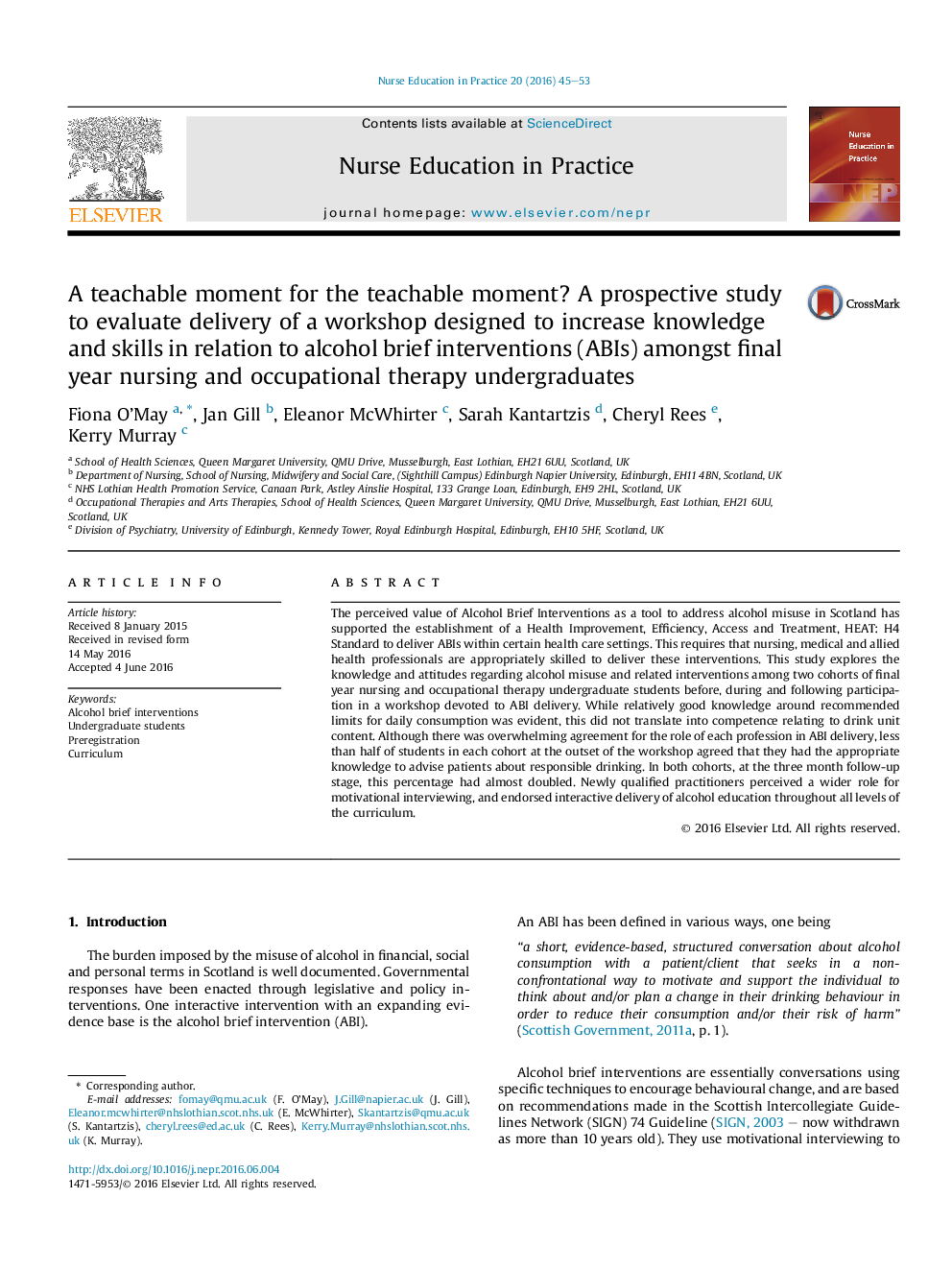| Article ID | Journal | Published Year | Pages | File Type |
|---|---|---|---|---|
| 366627 | Nurse Education in Practice | 2016 | 9 Pages |
•We examined the effectiveness of ABI training with final year healthcare students.•ABI training identified considerable gaps in knowledge, also acknowledged by students.•Students were supportive of the value and generic application of training.•Early introduction and iteration of ABI training within the curriculum was advocated.•The HE sector is a potentially cost-effective means to deliver key ABI skill training.
The perceived value of Alcohol Brief Interventions as a tool to address alcohol misuse in Scotland has supported the establishment of a Health Improvement, Efficiency, Access and Treatment, HEAT: H4 Standard to deliver ABIs within certain health care settings. This requires that nursing, medical and allied health professionals are appropriately skilled to deliver these interventions. This study explores the knowledge and attitudes regarding alcohol misuse and related interventions among two cohorts of final year nursing and occupational therapy undergraduate students before, during and following participation in a workshop devoted to ABI delivery. While relatively good knowledge around recommended limits for daily consumption was evident, this did not translate into competence relating to drink unit content. Although there was overwhelming agreement for the role of each profession in ABI delivery, less than half of students in each cohort at the outset of the workshop agreed that they had the appropriate knowledge to advise patients about responsible drinking. In both cohorts, at the three month follow-up stage, this percentage had almost doubled. Newly qualified practitioners perceived a wider role for motivational interviewing, and endorsed interactive delivery of alcohol education throughout all levels of the curriculum.
